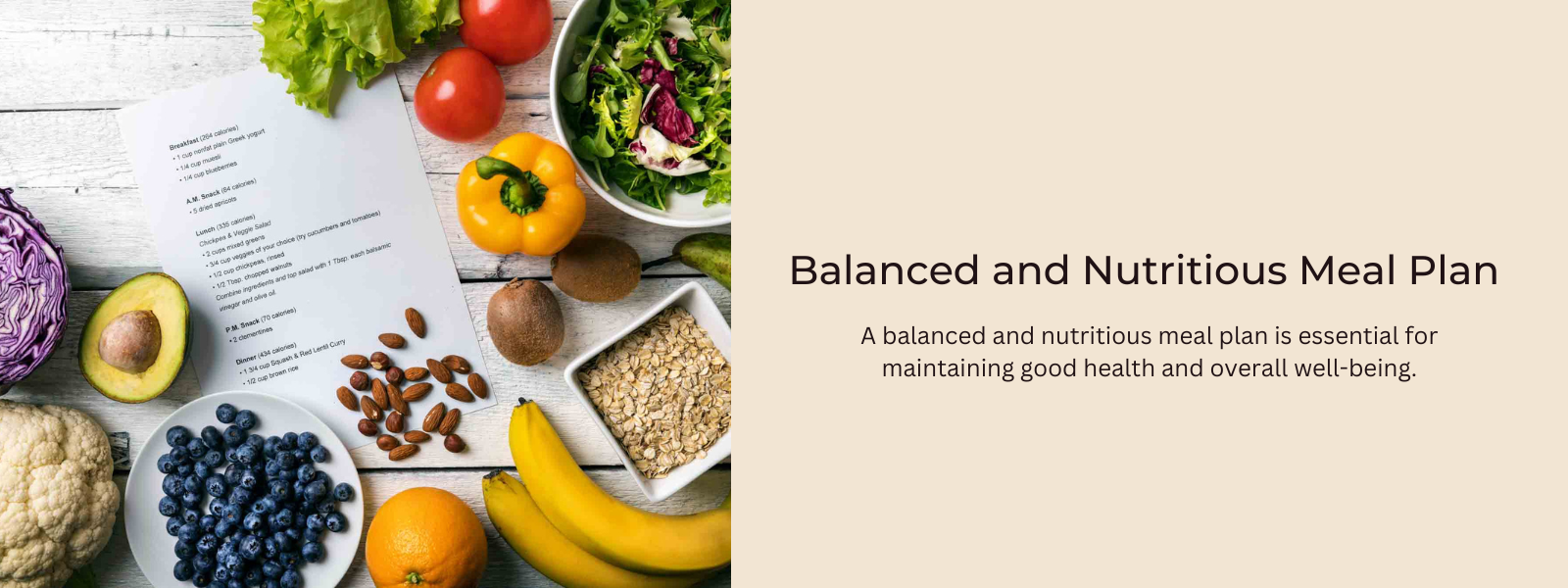Meal planning is a valuable strategy for achieving a year of healthy eating. By setting clear goals and creating a weekly schedule, you can structure your nutrition and make intentional food choices. Assessing your schedule and planning balanced meals that align with your health objectives ensures that you eat healthily even on busy days. Generating a grocery list organized by categories streamlines shopping, reduces food waste, and can be budget-friendly. Ultimately, these meal planning tips provide the foundation for a year of nutritious, satisfying, and stress-free eating.
Table of Contents
Best Meal Planning Tips for a Successful Year of Healthy Eating
- Set Clear Goals: Start by defining your health and nutrition goals for the year. Whether it's weight management, improving nutrient intake, or trying new recipes, having clear objectives will guide your meal planning.
- Create a Weekly Schedule: Dedicate a specific day each week for meal planning and grocery shopping. Consistency is key to successful meal planning.
- Assess Your Schedule: Consider your weekly schedule when planning meals. On busier days, opt for quick and easy recipes, while you can allocate more time for cooking on leisurely days.
- Plan Balanced Meals: Aim for balanced meals that include a variety of food groups. Incorporate lean proteins, whole grains, plenty of vegetables, and healthy fats into your plans.
- Grocery List: After planning your meals, create a comprehensive grocery list. Organize it by categories (produce, dairy, proteins, etc.) to make your shopping efficient.
Benefits of Meal Planning Tips for a Successful Year of Healthy Eating:
- Structured Approach: Meal planning provides a structured approach to your nutrition, helping you make intentional food choices rather than relying on impulsive or unhealthy options.
- Time-Saving: Planning meals in advance can save time during the week as you'll know exactly what to prepare, reducing last-minute decisions and rushed, less healthy choices.
- Healthy Eating: Meal planning enables you to choose balanced and nutritious meals, ensuring you meet your health and wellness goals. It reduces the likelihood of turning to fast food or processed options.
- Portion Control: Meal planning allows you to control portion sizes and prevent overeating, which is crucial for weight management and overall health.
- Reduces Food Waste: By planning your meals, you can shop for specific ingredients and reduce food waste, as you'll only buy what you need and use.
- Variety: Meal planning encourages trying new recipes and cuisines, promoting a diverse and enjoyable eating experience.
- Budget-Friendly: It can be cost-effective, as you're less likely to dine out or order takeout, and you can take advantage of sales and discounts at the grocery store.
- Health Goals: Meal planning aligns with various health goals, such as weight management, improved nutrient intake, dietary restrictions, and specific diets.
- Stress Reduction: It eliminates the stress of deciding what to eat each day, leading to a more relaxed and enjoyable mealtime experience.
- Sustainability: Meal planning is a sustainable practice that can lead to long-term healthy eating habits, making it easier to maintain a healthy diet throughout the year.
Meal Planning Tips Can Be Beneficial For Busy Moms:
Meal planning tips can be a lifeline for busy moms. Here's how they can be particularly beneficial:
- Time Management: Busy moms often have packed schedules. Meal planning allows them to allocate time efficiently by knowing what to cook in advance, saving precious minutes during the week.
- Healthy Choices: Juggling family and work can sometimes lead to quick, less healthy food decisions. Meal planning ensures that nutritious options are readily available, promoting better health for both moms and their families.
- Reduced Stress: By eliminating the daily "what's for dinner" dilemma, meal planning reduces stress and decision fatigue, allowing moms to enjoy more relaxed meal times.
- Variety and Nutrition: Busy moms can plan diverse and nutritionally sound meals that cater to the dietary needs of their family members.
- Batch Cooking: Preparing larger portions and utilizing leftovers from planned meals can make it easier to feed the family even on hectic days.
- Self-Care: By ensuring that they and their families are eating well, busy moms can prioritize self-care and well-being.
Can Meal Planning Tips For Healthy Eating Help You Lose Weight?
While meal planning alone may not guarantee weight loss, it's a powerful tool when combined with a balanced diet and regular physical activity. It promotes healthier eating habits and can help you create a calorie deficit, which is key for weight loss. Meal planning helps you maintain a consistent eating pattern, which can regulate your metabolism and prevent erratic, impulsive food choices. You can monitor calorie intake more effectively by planning meals with a specific calorie target in mind. It promotes mindful eating, encouraging you to pay attention to what you're consuming, recognize your body's hunger and fullness cues, and eat with intention.










Leave a comment